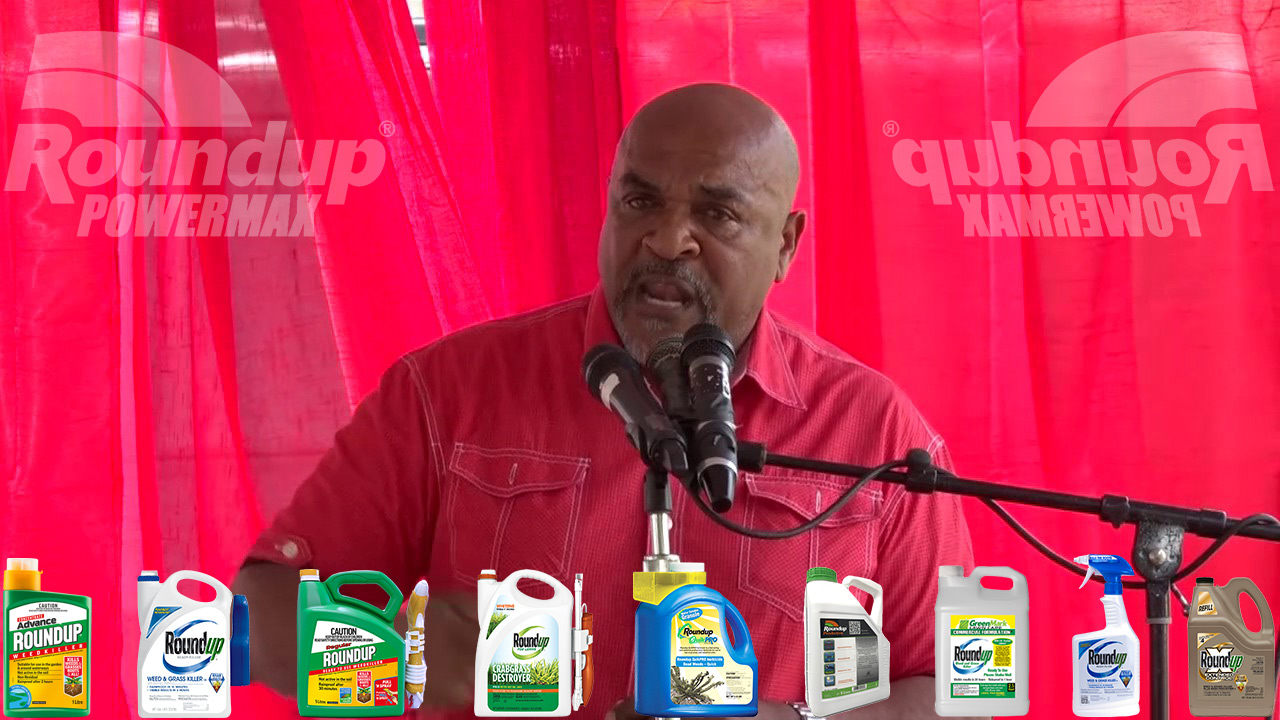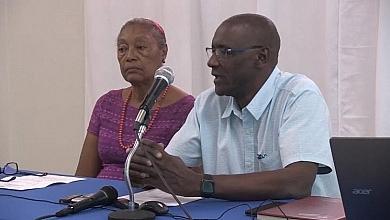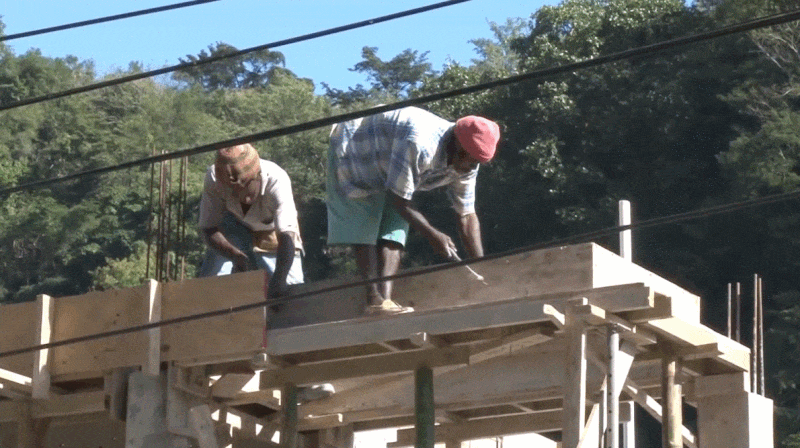Government to Ban Use of Pesticide RoundUp; Rehabitate Feeder Roads to Caholm Farms
The government is to ban the use of the pesticide RoundUp, and rehabilitate feeder roads to Caholm farms. RoundUp is a very toxic pesticide manufactured in the United States to fight off crop pests, but inhalating it even from a far distance has been linked to various debilitating diseases such as cancer, stroke and cerebral hemorrhaging among others.
Produced by Monsanto, many countries around the world have begun to ban the importation and use of RoundUp as a weedkiller and pesticide, and Dominica is also following suit, said Agriculture Minister Reginald Austrie. The World Health Organization’s International Agency for Research on Cancer (IARC) in 2015 said glyphosate, the main compound in the pesticide, is “probably carcinogenic”.
Banning the weedkiller and pesticide will ensure that farmers in Dominica are protected from whatever neurodegenerative diseases that may result from exposure to Roudup, Austrie said.
“But we must find a replacement for the farmers,” the minister for agriculture said. “That is why in this package, it makes provisions for chainsaws, brushcutters, wheelbarrows, and tillers. So when we come to you with a sensitization plan, you will determine what exactly you want, what package you need. And for those of you who farm on flatlands, you can use your swiper to cut the grass instead of using toxic chemicals to kill weeds in readines for agriculture.”
In the same vein, feeder roads in Carholm will be rehabilitated to make them more motorable into farms and rural settings, Austrie revealed. Prime Minister Skerrit recently met with farmers in Carholm to access the situation of their roads, but ultimately promised them repairs. Austrie said he is quite positive that the government will make good on their promise.
“We looked, we took notes, and we’re hoping that within the shortest possible time, that all those entities can meet and come together to advise the government as to what is it that can be done to bring some relief to the farmers,” he said.
Austrie said reconstructing the farm access roads may prove challenging since there are rivers and areas prone to landslides to navigate. He said the rehabilitation will be slow and steady, adding that “the government has given them a commitment that as soon as we get the drawings, we get the designs, we get the advice, that we’ll move immediately to ensure that we can create, probably initially on a temporary basis, but to make access to their farms more motorable on a permanent basis.”
This article is copyright © 2019 DOM767









